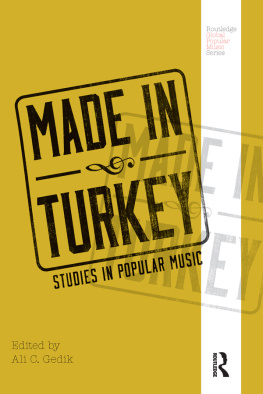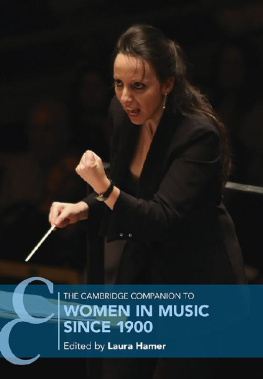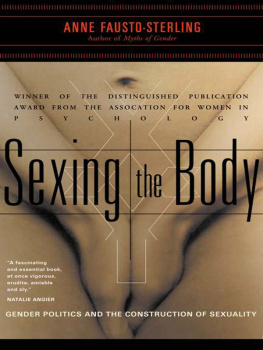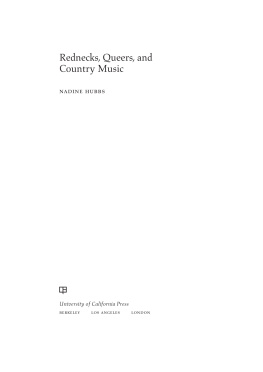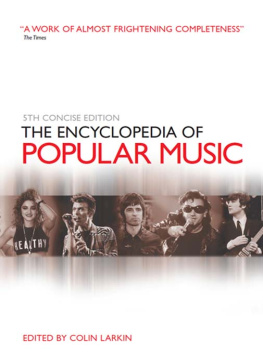SEXING THE GROOVE
Why is record collecting associated with men and not women? Why are female singers well-known but female guitarists and drummers overlooked? Are record companies misogynistic? What different ideas about masculinity are represented by Bruce Springsteen and the Pet Shop Boys? Can there be such a thing as a female Elvis?
Sexing the Groove discusses these issues and many more, bringing together leading international music and cultural theorists to explore the relationship between popular music, gender and sexuality. Using a variety of methodologies and a wide range of case studies, from Mick Jagger to Riot Grrrls, the contributors describe and debate how popular music performers, subcultures, fans and texts construct and deconstruct masculine and feminine identities.
Sexing the Groove is structured into sections focusing on rock music culture, masculinities and popular music, women and popular music, and music, image and identity. Each section is contextualised by an informative discussion which situates the individual chapters within the overall argument of the collection: that there is nothing natural, permanent or immovable about the regime of sexual difference which governs society and culture. Sexing the Groove also includes a comprehensive annotated bibliography for further reading and research into gender and popular music.
Contributors: Mavis Bayton, Stella Bruzzi, Norma Coates, Sara Cohen, Sean Cubitt, Charlotte Greig, Stan Hawkins, Mary Celeste Kearney, Marion Leonard, Paul McDonald, Keith Negus, Gareth Palmer, David Sanjek, Will Straw.
Editor: Sheila Whiteley is Senior Lecturer in Popular Music and Associate Director of the Institute for Social Research at the University of Salford. She is author of The Space Between the Notes: Rock and the Counter-Culture.
SEXING THE GROOVE
Popular music and gender
Edited by Sheila Whiteley

To the International Association for the Study of Popular Music
First published 1997
by Roudedge
2 Park Square, Milton Park, Abingdon, Oxon, OX14 4RN
Simultaneously published in the USA and Canada
by Routledge
270 Madison Ave, New York NY 10016
Transferred to Digital Printing 2009
1997 selection and editorial matter, Sheila Whiteley;
individual contributions, the contributors.
Typeset in Joanna and Bembo
by M Rules
All rights reserved. No part of this book may be reprinted or reproduced or utilized in any form or by any electronic, mechanical, or other means, now known or hereafter invented, including photocopying and recording, or in any information storage or retrieval system, without permission in writing from the publishers.
British Library Cataloguing in Publication Data
A catalogue record for this book is available from the British Library
Library of Congress Cataloging in Publication Data
Sexing the groove: Popular music and gender/edited by Sheila Whiteley
p. cm.
Includes bibliographical references and index.
1. Popular musicSocial aspects.
2. Sex in music.
I. Whiteley, Sheila
ML3470.S46 1997
306.484dc21 975416
ISBN 0415146704 (hbk)
ISBN 0415146712 (pbk)
ISBN 9781135105198 (epub)
Publishers Note
The publisher has gone to great lengths to ensure the quality of this reprint but points out that some imperfections in the original may be apparent.
CONTENTS
THE MISSING LINKS 207
Riot grrrl feminism lesbian culture |
CONTRIBUTORS
Mavis Bayton teaches sociology, cultural studies, music and womens studies at Ruskin College, Oxford. She is author of How Women Become Rock Musicians, which appeared in Simon Frith and Andrew Goodwin (eds) On Record: Rock, Pop and the Written Word (1990) and of Out in the Margins: Feminism and the Study of Popular Music, in Women: A Cultural Review 3(1), Spring, 1992. She was a founder member of Oxfords first all-women band and has since performed in a number of contexts.
Stella Bruzzi teaches film at Royal Holloway, University of London. She is a regular contributor to Sight and Sound, and has published in Screen and other film and cultural studies journals. Her book Undressing Cinema: Clothing and Identity in the Movies is to be published by Routledge in 1997.
Norma Coates is a doctoral student in Communication Arts at the University of Wisconsin-Madison. Her research interests are in the area of feminist media studies, in particular feminist popular music studies. She has an article on women, rock and the Internet in the forthcoming Herman, Swiss and Sloop (eds) Mapping the Beat: Popular Music and Contemporary Theory (Blackwell).
Sara Cohen played in various bands before completing a PhD at Oxford University. She is a lecturer and Research Co-ordinator at the Institute of Popular Music, Liverpool University. Her publications include the books Rock Culture in Liverpool (Oxford University Press, 1991), and, with K. McManus, Harmonious Relations (National Galleries and Museums on Merseyside, 1991), as well as numerous articles in various edited books and academic journals. She is currently co-authoring a book on popular music, tourism and urban regeneration, and conducting a major research project on music policy, the music industry and local economic development.
Sean Cubitt is Reader in Video and Media Studies and route leader in Screen Studies at John Moores University, Liverpool. His publications include Maybellene: Meaning and the Listening Subject, Popular Music 4, Cambridge University Press. He has published widely on contemporary arts and media. His most recent book is Videography: Video Media as Art and Culture.
Charlotte Greig is a freelance journalist and lecturer in popular music. Her book Will You Still Love Me Tomorrow? is recognised as a seminal text on girl groups. She is also a songwriter and performer with a number of bands and artists.
Stan Hawkins is Associate Professor of Musicology in the Department of Music and Theatre at Oslo University where he teaches and researches within the field of popular music studies. His publications include articles on commercial music of the 1980s and 1990s, the problems in the reception of popular music, and aspects of gender and identity within the area of postmodern critical studies. From 1991 to 1994 he was British chair of the International Association for the Study of Popular Music, and is currently co-editor of the journal Popular Musicology. As a musician, he has also pursued an international career as a composer and performer in the field of jazz and contemporary music.
Mary Celeste Kearney is a PhD candidate in the Film, Literature, and Culture Program, Division of Critical Studies, School of Cinema-TV at the University of Southern California. Her dissertation analyses the politics of gender, generation and representation in popular discourses of feminine adolescence and female youth cultures. She is currently editing a special issue on audiovisual media for SPECTATOR, the University of Southern California Journal of Film and Television Criticism.
Marion Leonard is a doctoral student and part-time lecturer at the Institute of Popular Music, Liverpool University. Her article on zines, Paper Planes: Travelling the New Grrrl Geographies is collected in Tracey Skelton and Gill Valentine (eds) Cool Places: Geographies of Youth Cultures (Roudedge, 1997).
Paul McDonald is a Senior Lecturer in Media Studies at South Bank University, London. He has written on aspects of television and film performance for
Next page

